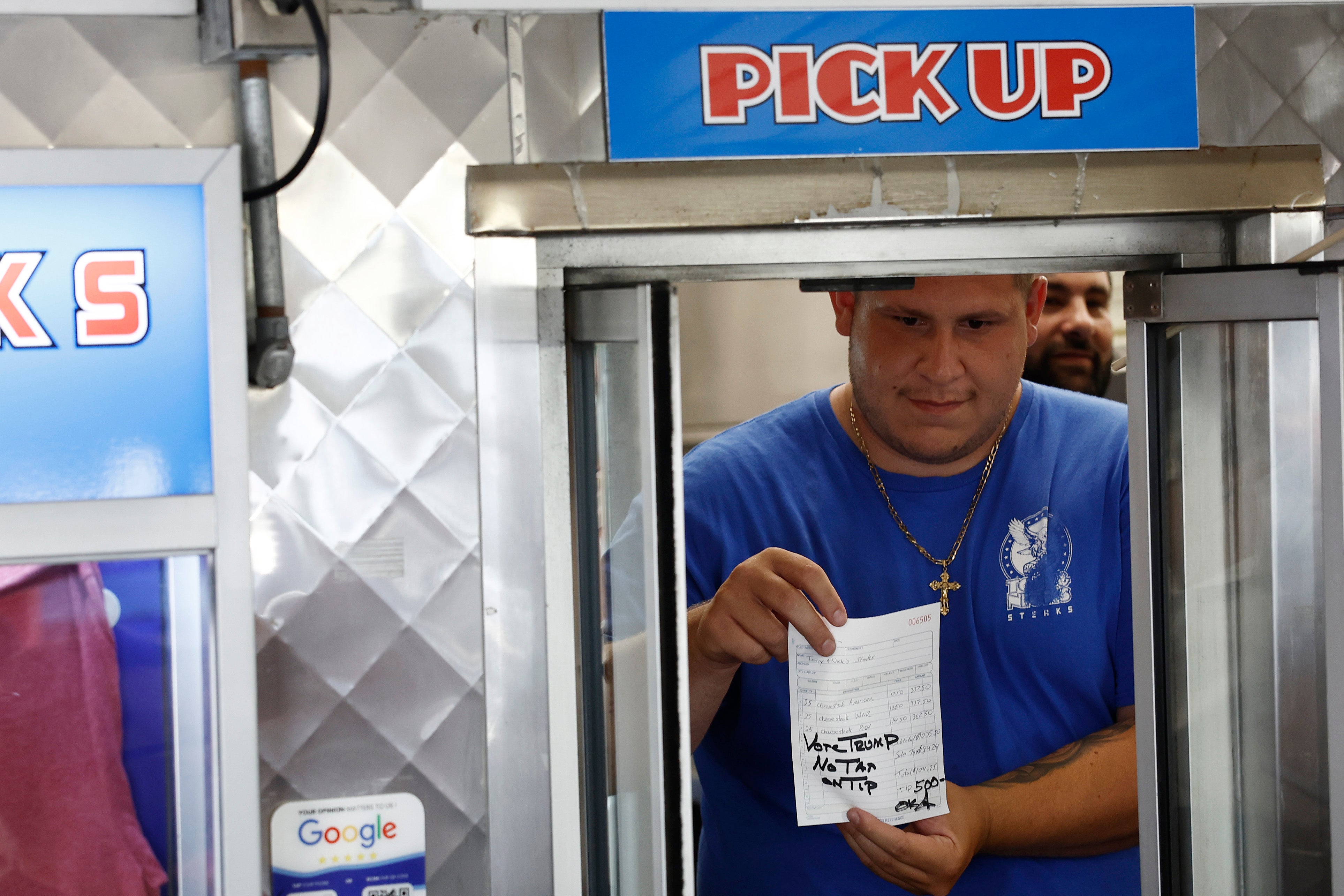Bartenders, golf caddies, residential plumbers, babysitters, and taxi drivers are just some of the 68 occupations that will benefit from President Donald Trump’s “no taxes on tips” policy.
For the first time since the policy was enacted as part of Trump’s One Big Beautiful Bill, the Treasury Department has revealed which sectors and specific jobs will be eligible to claim deductions of up to $25,000 per year on their taxes through 2028.
The policy will mainly impact eight categories of jobs: food and beverage service, entertainment and events, hospitality and guest services, home services, personal services, personal appearance and wellness, recreation and instruction, and transportation and delivery.
While the “no taxes on tips” policy is popular with most Americans, it only impacts a small sector of the workforce. Approximately 2.5 percent of American workers receive tips, according to the Yale Budget Lab.
But of that group, an even smaller percentage will see financial benefit from the policy. That’s because more than one-third are considered low-income and exempt from federal income tax.
Here are the occupations that will benefit from the new temporary policy, according to a Treasury Department list first reported by Axios.
Food and beverage service
- Bakers
- Bartenders
- Chefs and cooks
- Dining room, cafeteria attendants, and bartender helpers
- Dishwashers
- Food Servers, Non-restaurant
- Food preparation workers
- Host staff in restaurants, lounges, and coffee shops
- Wait Staff
Entertainment and events
- Dancers
- Digital content creators
- Disc jockeys (except radio)
- Entertainers and performers
- Gambling dealers
- Gambling change persons and booth cashiers
- Gambling cage workers
- Gambling and sports book writers and runners
- Locker room, coatroom, and dressing room attendants
- Musicians and singers
- Ushers, lobby attendants, and ticket takers

Hospitality and guest services
- Baggage porters and bellhops
- Concierges
- Hotel, Motel, and Resort desk clerks
- Maids and housekeeping cleaners
Home services
- Home maintenance and repair workers
- Home landscaping and groundskeeping workers
- Home electricians
- Home plumbers
- Home heating/air conditioning mechanics and installers
- Home appliance installers and repairers
- Home cleaning service workers
- Locksmiths
- Roadside assistance workers
Personal services
- Event officiants
- Nannies and babysitters
- Personal care and service workers
- Private event planners
- Private event and portrait photographers
- Private event videographers
- Pet caretakers
- Tutors

Personal appearance and wellness
- Barbers, hairdressers, hairstylists, and cosmetologists
- Exercise trainers and group fitness instructors
- Eyebrow threading and waxing technicians
- Makeup artists
- Manicurists and pedicurists
- Massage therapists
- Shampooers
- Shoe and leather workers and repairers
- Skincare specialists
- Tailors
- Tattoo artists and piercers
Recreation and instruction
- Golf caddies
- Recreational and tour pilots
- Self-enrichment teachers
- Sports and recreation instructors
- Tour guides and escorts
- Travel guides

Transportation and delivery
- Goods delivery people
- Home movers
- Parking and valet attendants
- Personal vehicle and equipment cleaners
- Private and charter bus drivers
- Rickshaw, pedicab, and carriage drivers
- Shuttle drivers
- Taxi and rideshare drivers and chauffeurs
- Water taxi operators and charter boat workers
The temporary deductions policy, signed into law in July, is in effect from 2025 until 2028. Treasury Secretary Scott Bessent told Axios that the policy is “expansive but fair.”
While it may benefit some workers, the policy’s impact becomes smaller once an individual’s adjusted gross income (AGI) exceeds $150,000.
The Independent has asked the Treasury Department for comment.







